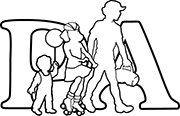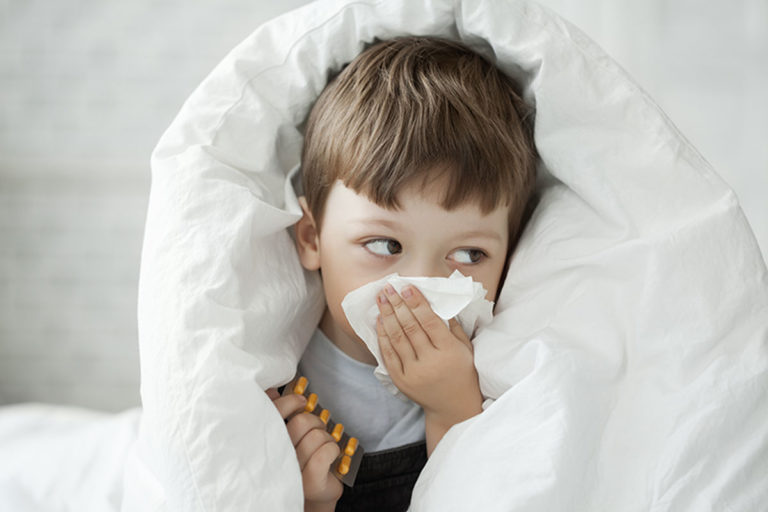It’s flu season…. or is it just a cold….
The cold weather months bring with it viral “cold” season. Although it is common to refer to any winter time febrile illness as the “flu” or throwing up illness as the “stomach flu,” much of the illness in your home this winter will be non-influenza viruses. Most of these are spread by “droplets” meaning when people are sick and sneeze or cough nearby.
Good hand washing and common sense isolation (don’t send your child to school with a fever or hacking cough) are good rules to follow throughout the winter. Antibiotics are not used for viral illnesses; however, if your child has fever and cold symptoms that last longer than a week, it is a good idea to call your pediatrician’s office for advice and possible sick visit. If your child is having the “usual” cold symptoms and normal activity level, symptomatic care at home makes sense.
Influenza, or the flu, is a contagious viral illness that typically begins to show up between November and January. Although the effectiveness of the flu vaccine is not known until flu season is upon us, the best prevention against it is to get your vaccine. The American Academy of Pediatrics (AAP) and Centers for Disease Control (CDC) recommend that all children 6 months and older receive a flu shot (the nasal mist flu is available for children older than 2 who don’t have underlying medical conditions). Certainly parents, grandparents and other care givers of young children (especially infants who are too young to get the shot) should also be encouraged to get a flu shot. The flu shot cannot “cause” the flu, although it’s not uncommon to have some mild aches and pains or even a short-lived fever after the flu shot.
Symptoms of the flu in children almost always include fever (often high), runny nose and cough. Other symptoms can include body aches, sore throat, headache or throwing up. If your child has an underlying medical condition, is unable to keep down liquids, or has other behaviors that concern you, seeing your pediatrician promptly is recommended. Depending on the symptoms, the timing and your child’s medical history, there may be appropriate treatment with anti-viral medication (antibiotics do not treat the flu since it is a virus). If you are unsure, call your pediatrician’s office for advice on whether a sick visit makes sense. Flu can lead to serious complications in some children so be on the look out for signs of ear infections, pneumonia, dehydration, or wheezing flare ups in children with asthma.
And what about a sinus infection? Sinusitis is a common winter ailment. Sinusitis is a swelling or irritation of the sinus cavities that is most likely caused by a viral illness, but also can be caused by allergies. Young children have not developed all their sinus cavities yet and this is the reason kids are less likely to get sinusitis and more likely to end up with ear infections and nagging runny noses (no place for all the mucous to collect). Because the majority of sinus infections are viral (not bacterial), antibiotics do not improve symptoms, and, therefore, rest, fluids and fever reducer are likely to be prescribed. Nasal sprays or washes and humidifiers are also often helpful. If your child has a runny nose, fever and cough that extends longer than 10-14 days it is reasonable to be seen by your pediatrician. Certainly, if the child is not eating or drinking well, has shortness of breath or has low energy level, an appointment sooner makes sense.
Winter is the time when many parents get frustrated by hearing “It’s a virus. Give it some time and treat the symptoms.” As a pediatrician (and a parent), I realize it is frustrating to not have a magic cure, so I encourage all my parents to trust their instincts and call if they are unsure if the symptoms are normal or if the reassurance of a visit to the doctor’s office would help.
Paige Perriello, MD, FAAP
Pediatric Associates of Charlottesville

